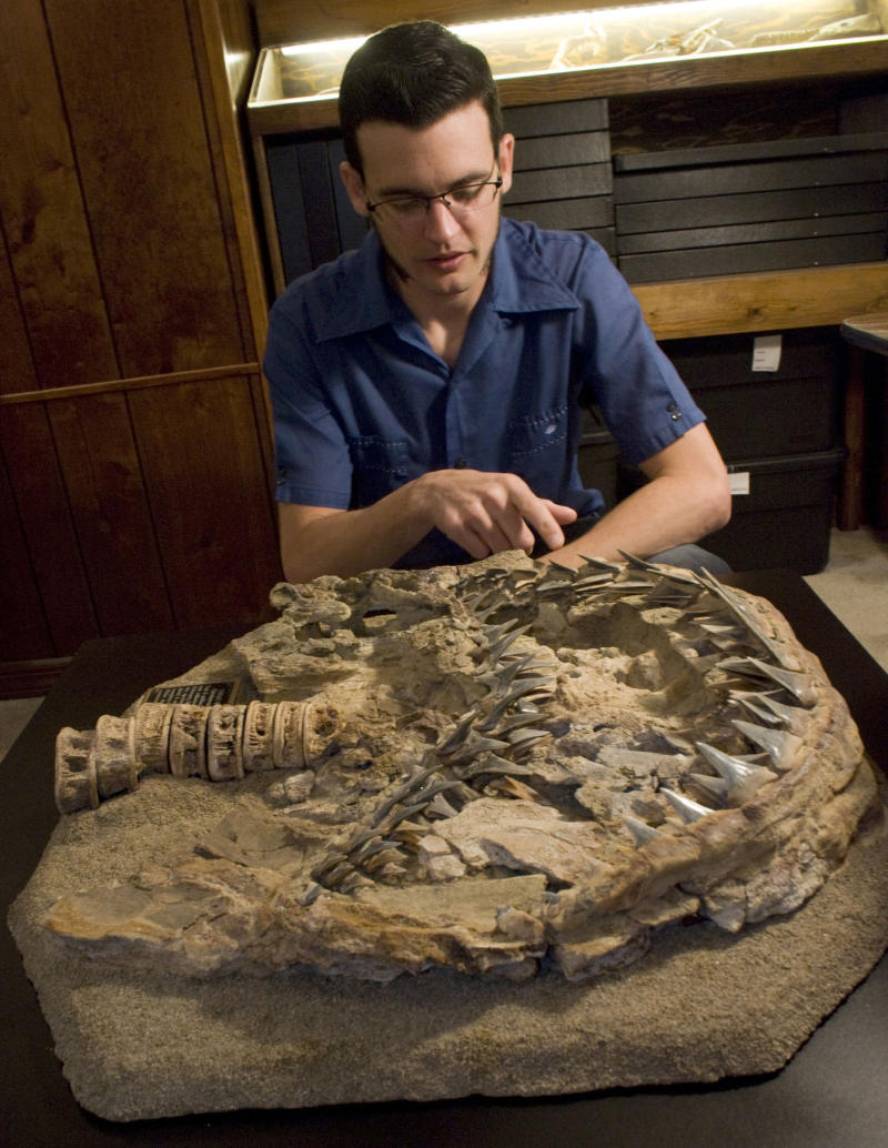The giant megalodon is not the ancestor of the white shark
A fossil discovered in Peru reveals that the white shark and the missing megalodon shark do not belong to the same evolutionary line. On the contrary, the ancestor of the white shark comes from a band shark.
There was a debate on this issue, it was unclear what species the white shark evolved. One of the most blunt hypotheses is that this species is Carcharocles megalodon, a giant shark disappeared 1.5 million years ago. 16 meters long, some experts believe that this great shark evolved to be smaller, until it acquired the shape of the current white shark of 6 meters. However, all the experts disagreed because not all the characteristics of the two sharks are the same. Teeth, for example, are different. For some experts, this means that they are not of the same evolutionary line and others say that teeth are very variable in evolution and that they cannot be ruled out from the same line.
Now the debate has been modified by a fossil found in Peru. At the site called Pisco Formation, there is an articulated jaw of a shark in its entirety. Palaeontologists at the University of New Jersey have published in the journal Palaeontology that the fossil is an "intermediate" copy of the white shark and a shark of the band; according to this study, the ancestor of the white shark is not a giant megalodon, but a shark of the line.
This conclusion was not initially approved by all paleontologists. The problem was the chronology, since the white shark was totally evolved at the time when the grain of the new fossil lived according to the dating. Therefore, paleontologists in New Jersey decided to make a more detailed dating.
They traveled to the site, Peru, where they identified the exact original location of the fossil and made a second dating through the fossils of small native mollusks: the fossil was older than that of the previous dating, data that coincides with the hypothesis of the evolution of the mako. The white shark is descended from a line.
Paleontologists were very lucky; three hours after leaving the Pisco Formation, a large earthquake destroyed the site.






